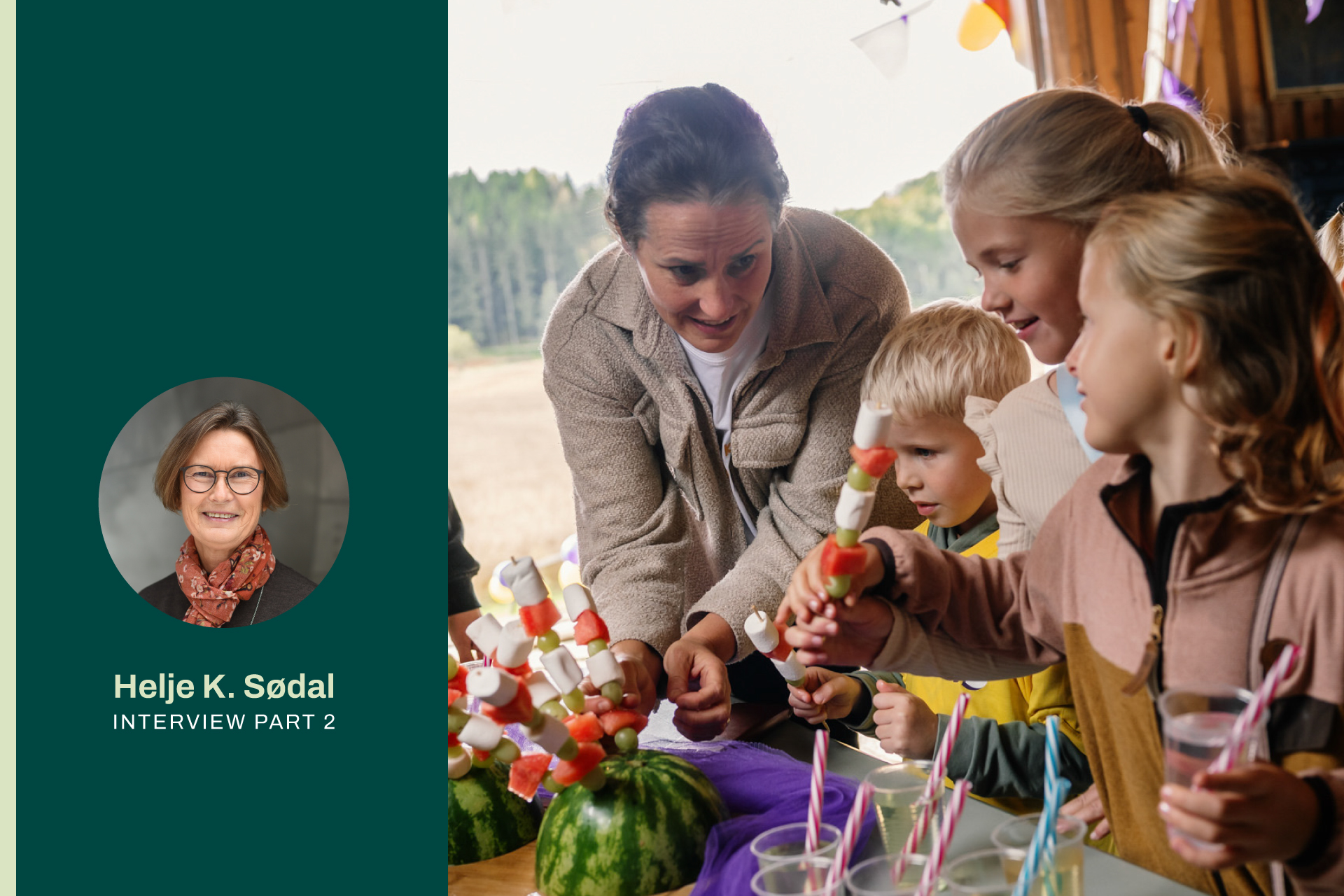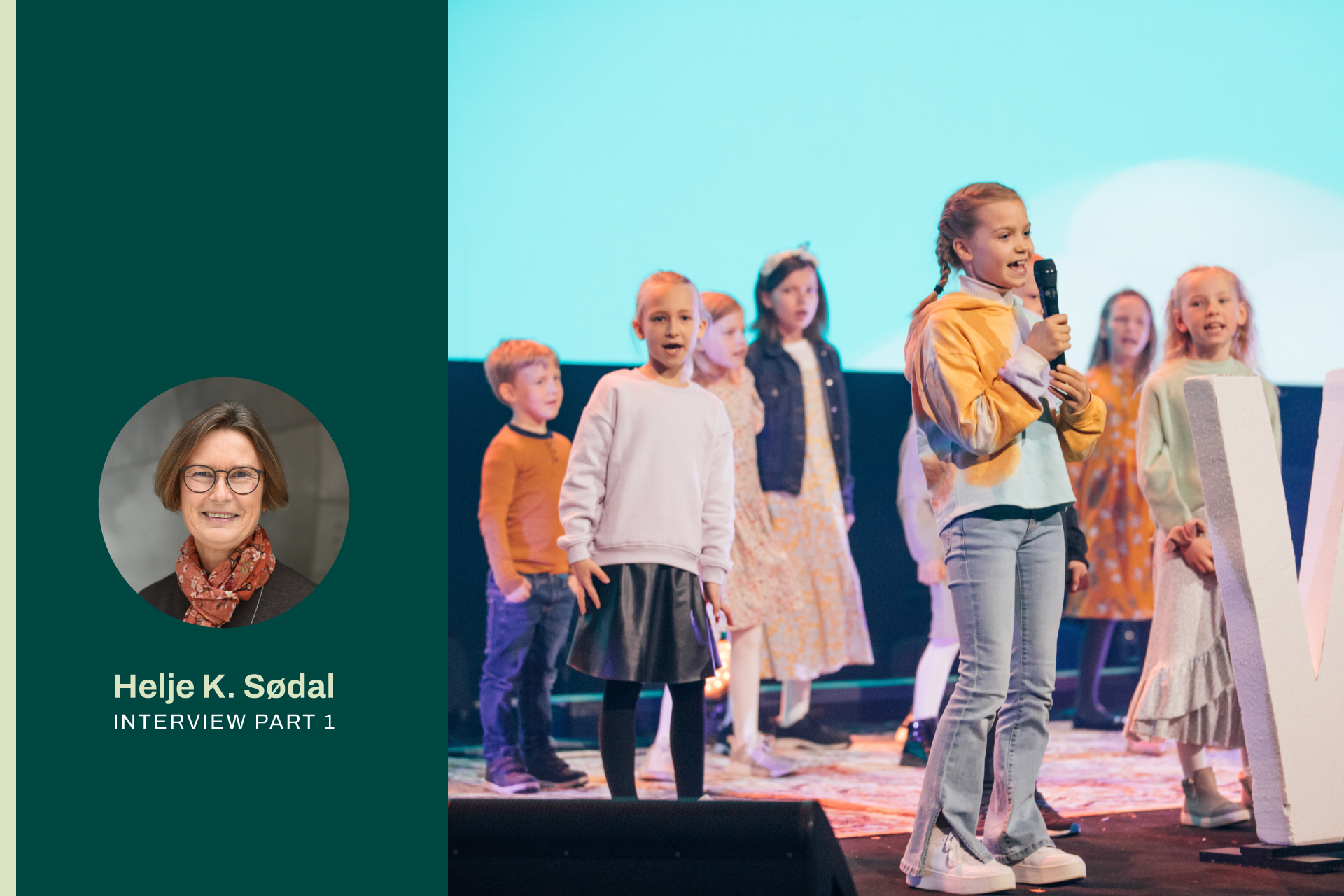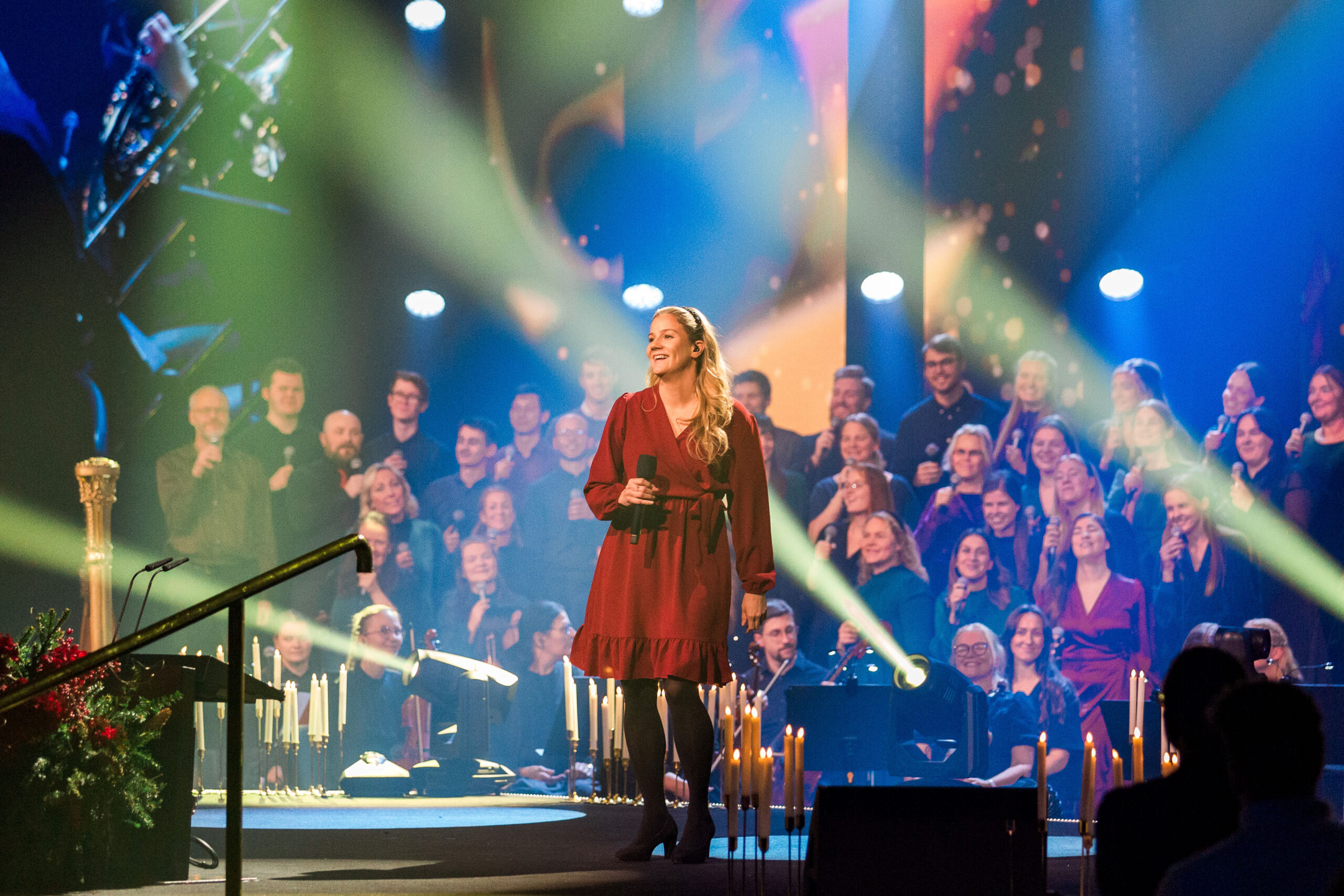Some of the topics covered in the first part of the interview included good habits of faith and sound communities that can prevent negative experiences. When Kringlebotn Sødal makes a statement, it is weighty. Her research interests include Christianity as a cultural factor and life stance issues in schools and kindergartens. She has also written several books on teaching about faith and worldviews.
Is Christianity actually good or bad for children?
When asked if there is research into whether Christianity is good for children, Kringlebotn Sødal explains:
“ An atheist like Richard Dawkins considers belief in God to be a delusion that children’s brains are particularly vulnerable to. He and many others have stories that religion is not good for children. However, I have yet to see empirical research documenting that religion is harmful to children in general; on the contrary. For example, according to a large American study (2007), children with religiously active parents had better social skills, greater learning ability and better self-control than children from secular backgrounds.”
The fact that most children grow up in a secularized culture in today’s society is something she believes churches must also take into account.
” Most children grow up in a secularized culture where you rarely meet people who actively live out their faith in a community. Anyone who grows up in a family that practices faith is a religious minority, whether they come from Muslim homes or from families in the Church of Norway, the Pentecostal movement or BCC. It can be quite demanding, ” she says and adds:
” Adults and churches provide varying degrees of help in coping with being a minority outside the church. Churches and homes now have to fill a knowledge space that used to be partly taken care of by school. Schools no longer ensure that most people are informed about Christianity, with a reasonably good grasp of what Christianity is all about.”
Kringlebotn Sødal points out that the internet is an important learning arena for many children and young people, and that there are many things that can create confusion and prejudice rather than knowledge about faith and Christian life, and asks rhetorically:
“When secular media producers focus mostly on sensation, scandals and sad stories at the individual level, and what is maybe shared the most is not the most representative or professionally solid material—what can homes and churches do in the face of this?”
Faith education and activities
Kringlebotn Sødal has argued several times that many people can learn something from BCC when it comes to working with children and young people. We ask her what she means by that, and she emphasizes that a Christian environment means a lot.
” “You have invested a lot of resources in children and young people, and that’s a strength. You have invested in varied activities of which faith education is a natural part. The conferences and meetings for people from many geographical areas are a unique socialization arena. I think young people in BCC generally have much larger international networks than other Norwegian teenagers.
I det hele tilbyr BCC mye av det mange barn og unge i dag savner: Et miljø der de blir sett og får oppgaver som gir mestringsfølelse og selvtillit, og der de møter gode mennesker som bryr seg om dem.
But what about society’s responsibility in relation to both human rights and the Norwegian Religious Communities Act? Can the authorities’ desire for control come into conflict with parents’ right to raise their children according to their own beliefs and values?
” The topic of children and religious freedom is difficult. The age of consent for religion in Norway is 15, but the law suggests that children should be heard and gradually given more self-determination in religious matters before then. At the same time, the parents’ right to decide on their children’s upbringing in the field of religious beliefs has traditionally been strong in Norway.” .
How to weigh different considerations when complying with laws and human rights?
The professor then mentions something that has gradually become quite controversial in Norwegian society, namely various topics and various teaching aids that are used in kindergartens and schools.
” However, I think something new has emerged in recent years. One example is the theme of ‘pink competence,’ which is present in kindergartens and schools in various ways. Some parents—and not just theologically conservative Christian parents—believe that their right to educate is being set aside through what is being conveyed in some kindergartens and schools, and through the teaching materials that are being used.”
Kringlebotn Sødal mentions another example, in the Norwegian Religious Communities Act from 2020. She points to section 6, which introduced several criteria for refusing or reducing religious community support, and that these criteria have great room for interpretation:
” For example, can clear preaching about perdition be perceived as ‘making threats?’ Or is denying membership or exclusion on the basis of faith a violation of someone else’s ‘freedom?’ And what does it really mean to ‘violate children’s rights?’”
Kringlebotn Sødal explains that the crucial point is whether the practice of traditional Christianity can be covered by the provisions of the Religious Communities Act. She says that hardly any religious communities would say that they are involved in something that is affected by this, but that outsiders and those who have had negative experiences may of course have a different viewpoint. She emphasizes that this is a demanding field:
” It will be exciting to see how this develops. Will the state use financial resources against religious minorities who, in some respects, have teachings and ethical positions that society and the majority do not like? In that case, tolerance will have become selective and religious freedom will have been eroded.”
Another thing that will be interesting in the future is how Norway complies with European human rights when it comes to both freedom of belief and freedom of expression, but also when it comes to illegal discrimination of children and parents’ rights to practice their faith. Norway has already received a good number of convictions in the European Court of Human Rights (ECHR). We ask Kringlebotn Sødal if this is a field where human rights can be threatened.
” Human rights must also be weighed up in relation to each other and in relation to other legislation. Freedom of religion is not absolute, even though it is a human right. For example: Some believe their religion requires them to circumcise girls. This is nevertheless a criminal offense in Norway.”
She mentions a specific case that Norway lost:
” Historically, the best-known Norwegian case regarding religion in the ECtHR concerns religious education in the form of the compulsory KRL [Christianity, Religion and Life Stance Studies] subject from 1997 and the link this subject had to the school’s purpose clause at the time. The state lost by a narrow margin in the judges’ panel, and laws and the curriculum had to be adjusted.”
The state may lose once again
The professor also points out that globally, religious freedom has definitely declined in recent years, and that Christians are being hit hard.
” The most topical religious freedom case [in Norway] is about Jehovah’s Witnesses being deprived of registration as a public religious community and thus also losing state subsidies and the right to perform marriages. If this case eventually ends up in the ECHR, the state may well lose once again,” says Kringlebotn Sødal, and emphasizes:
” “Discrimination and persecution on religious grounds have increased. Overall, it is Christians who are affected the most. Around one in eight Christians now experience discrimination or persecution around the world.”



